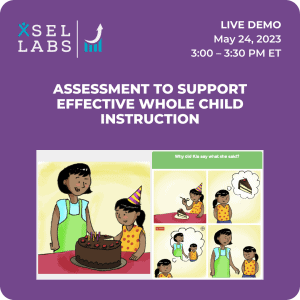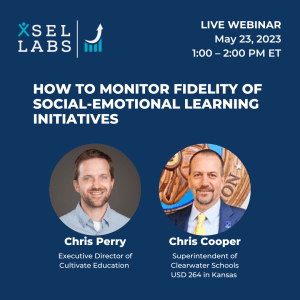In a time of divisive public discourse, it’s nice to know that parents, teachers, and others agree that the abilities to interact successfully with others and to make and maintain positive relationships are valuable skills to be nurtured. Many also agree that educators can and should play an important role in supporting children’s social-emotional development. In fact, research consistently finds that, whether they intend to or not, through their expectations, instructional practices, and relationships with students, teachers influence a host of social-emotional outcomes. Add a well-implemented social-emotional learning program to the mix, and that influence can be powerful indeed.
Parent Discomfort with SEL Assessment
Despite these areas of agreement, some parents are uncomfortable with SEL programs in schools. Parent discomfort with SEL, particularly SEL assessment, largely arises from three sources:
- Some parents believe that social-emotional learning is a family matter and should therefore not be taught in schools. This is a case of home and school values coming into conflict.
- Other parents are concerned that SEL assessment will lead to a diagnosis or label and stigma and a sub-optimal educational placement.
- Some parents are concerned that SEL assessment will show up on a report card. The issue here is that parents do not want their students school performance and academic record to include judgments about their social-emotional skills.
These are understandable concerns. Even parents who support SEL programming and assessment might be concerned about these and other unintended consequences.
Engaging Parents as Partners in SEL Assessment
Fortunately, some simple actions can help enlist parents as partners in assessing and addressing children’s social-emotional learning. To address parent concerns, I recommend the following:
- As I’ve described in prior blog posts, it will help you communicate effectively with parents if you have come to clarity about what you mean by SEL and what how you plan to use SEL assessment data. If you have these matters nailed, you can answer parent questions clearly and consistently.
- Inform all parents of the plan to assess student SEL, what will be assessed, and how the data will be used.
- The evidence most strongly supports the use of SEL assessment to understand student strengths and needs so that educators can tailor instruction to build on student strengths and address student needs. Most parents can support this use of SEL assessment data.
- State explicitly that the assessment results will not result in a diagnosis or label, and will not influence educational placement (unless this is not true, in which case, state how the assessment data will be used).
- Provide parents the option to opt their students out of SEL assessment.
We know these strategies can work. When districts who use SELweb do these things, most parents have supported schools’ use of SELweb, our direct assessment system for elementary aged children. Learn more about SELweb EE (for grades K to 3) and SELweb LE (for grades 4 to 6).
When in Doubt, Reach Out to Parents
So unless you have a really good reason, it’s best to approach the parents of your students with transparency about the what, how, and why, and to give them the option not to have their child participate. If and when concerns arise, positive engagement, not just with concerned parents, but with the entire community, is likely to result in constructive partnership.
Learn more about xSEL Labs.



